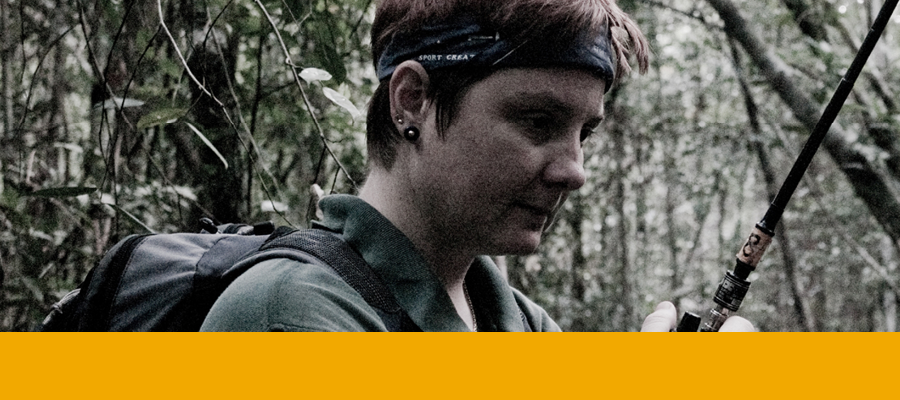Susan Cheyne

From co-founding a conservation charity that protects Borneo’s rainforest to leading one of the longest-running studies of gibbons in the world, this graduate has become a major force in wildlife protection. It was at the University of Edinburgh that Susan’s drive to work with wildlife and primate conservation was shaped.
Name: Dr Susan Cheyne
Degree course: BSc Zoology
Year of graduation: 1998
At the moment
What is your current role, and how did you get there?
I am from the west coast of Scotland and the University of Edinburgh was my first choice for my undergraduate. I studied Zoology.
At the moment, I wear three hats!
- Director of Science, Borneo Nature Foundation International – this is a non-governmental organisation (NGO) I helped establish with a friend and we are now celebrating our 25th anniversary.
- Vice Chair of the International Union for Conservation of Nature (IUCN) Species Survival Commission (SSC) Primate Specialist Group Section on Small Apes – this role was created in 2013 and I took over in 2015 which coincided with the first International Gibbon Day.
- Senior Lecturer in Biological Anthropology and Primate Conservation, Oxford Brookes University (OBU) – I am passionate about teaching and have been at OBU since 2010.
What inspired your interest in this field?
I was always passionate about wildlife, and making a difference, zoology showed me that there is a way to use science to inform positive change. I learnt a great deal at the University of Edinburgh including fieldwork techniques and theory which has served me well in my career. Watching Sir David Attenborough documentaries certainly had a big influence!
Career journey
What were some key milestones in your career journey?
Graduating from the University of Edinburgh, getting my first paid job in wildlife conservation in the USA, being accepted to Cambridge for my PhD and certainly getting my first paper published. Establishing the second longest running science conservation project on gibbons in the world is a huge achievement, especially when I was told no one could study gibbons in a tropical peat-swamp forest.
How did your time at the University shape your professional path?
It was at the University of Edinburgh that my drive to work with wildlife, and especially primate conservation, was really shaped. I am passionate about using science for conservation action and promoting personal and institutional resilience in the primatology community and for teaching which was something I really enjoyed learning about at university.
Can you share a standout achievement or moment you’re proud of?
I received the 2017 Marsh Award for Conservation Biology in partnership with the Zoological Society of London. Combined with this, I am very proud of my work to bring the network of people working for gibbon and siamang conservation together through the International Union for Conservation of Nature (IUCN) Species Survival Commission (SSC) Primate Specialist Group Section on Small Apes. The biggest achievement is the size of the conservation community I am a part of.
Industry insights
What are the biggest challenges and opportunities in your field right now?
The major threats to gibbons include loss of habitat and hunting pressure, often for the wildlife trade. The Section on Small Apes (SSA), is a group of more than 250 gibbon experts globally, with a shared vision of conserving the world’s gibbons. The SSA contributes to gibbon conservation through: 1) Strengthening coordination; 2) Increasing awareness of good practice; 3) Providing IUCN-endorsed guidelines; 4) Developing Conservation Action Plans; 5) Ensuring the IUCN Red List of Threatened Species is thorough and up-to-date and 6) Providing direct technical support to gibbon conservation.
What trends or innovations are shaping the future of your industry?
I think there is an increasing understanding of the use of technology in conservation from drones to camera traps and big data modelling. None of this removes the need for boots on the ground and good old fieldwork! The links between industry, the private sector, and conservation are opening up (not all are green-washing) so these are exciting times to advance what we can do for wildlife and nature conservation e.g. biodiversity credits, nature-based economies etc.
Alumni wisdom
What do you wish you had known at the start of your career?
I wish I had known that being a conservationist is a viable career choice, that it would mean constantly learning and that this is a career that can suit a wide variety of people with a huge range of skills.
What advice would you give to students or alumni looking to enter your field?
Do your homework about eco-volunteering, some of these organisations are excellent, others promote cuddling animals and this is not something which promotes their conservation. Investigate online and ask questions, there are so many resources online now to help you find your path. Go to conferences, more and more are really accessible to early career conservationists. Experience is needed but remember fieldwork is not for everyone, you can be an effective conservationist by doing desk-based work, policy, social media and communication
Are there any books, podcasts, or resources that have influenced you?
- Reason for Hope by Jane Goodall. A very honest and personal account of conservation past, present and future from someone with decades of experience.
- Anything by Sir David Attenborough.
- Mentorship by my academic supervisors and their help in guiding me has been invaluable. Also my own peer-network of conservationists, helping and supporting each other.
More
🔗 Borneo Nature Foundation International (external)
🔗 International Union for Conservation of Nature, Species Survival Commission (external)
🔗 Susan’s Oxford Brookes University staff profile (external)
All opinions expressed in this article are those of the individual and do not necessarily reflect those of the University of Edinburgh.
The University of Edinburgh is not responsible for the content and functionality of any linked external websites and nor does a link imply any endorsement.


